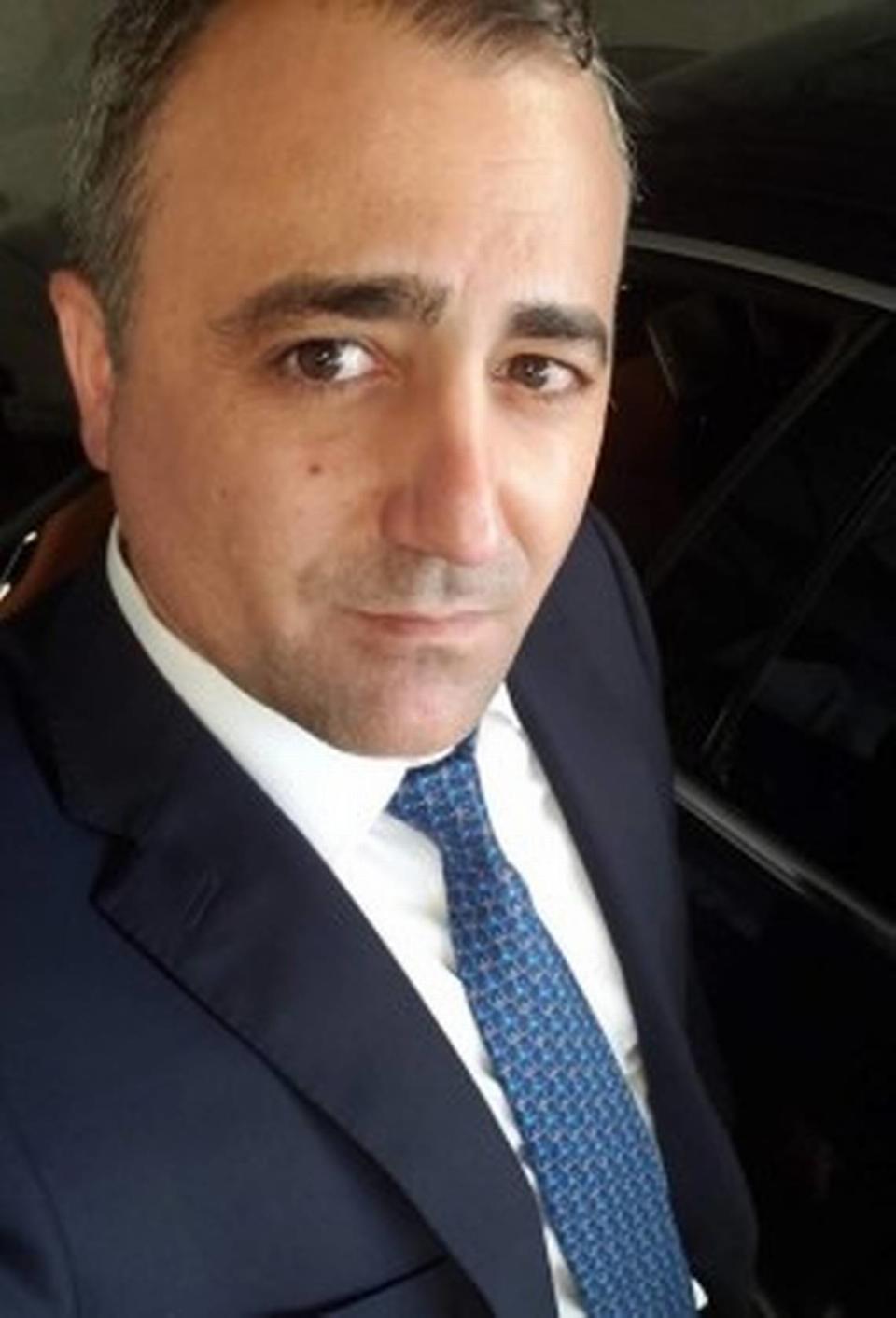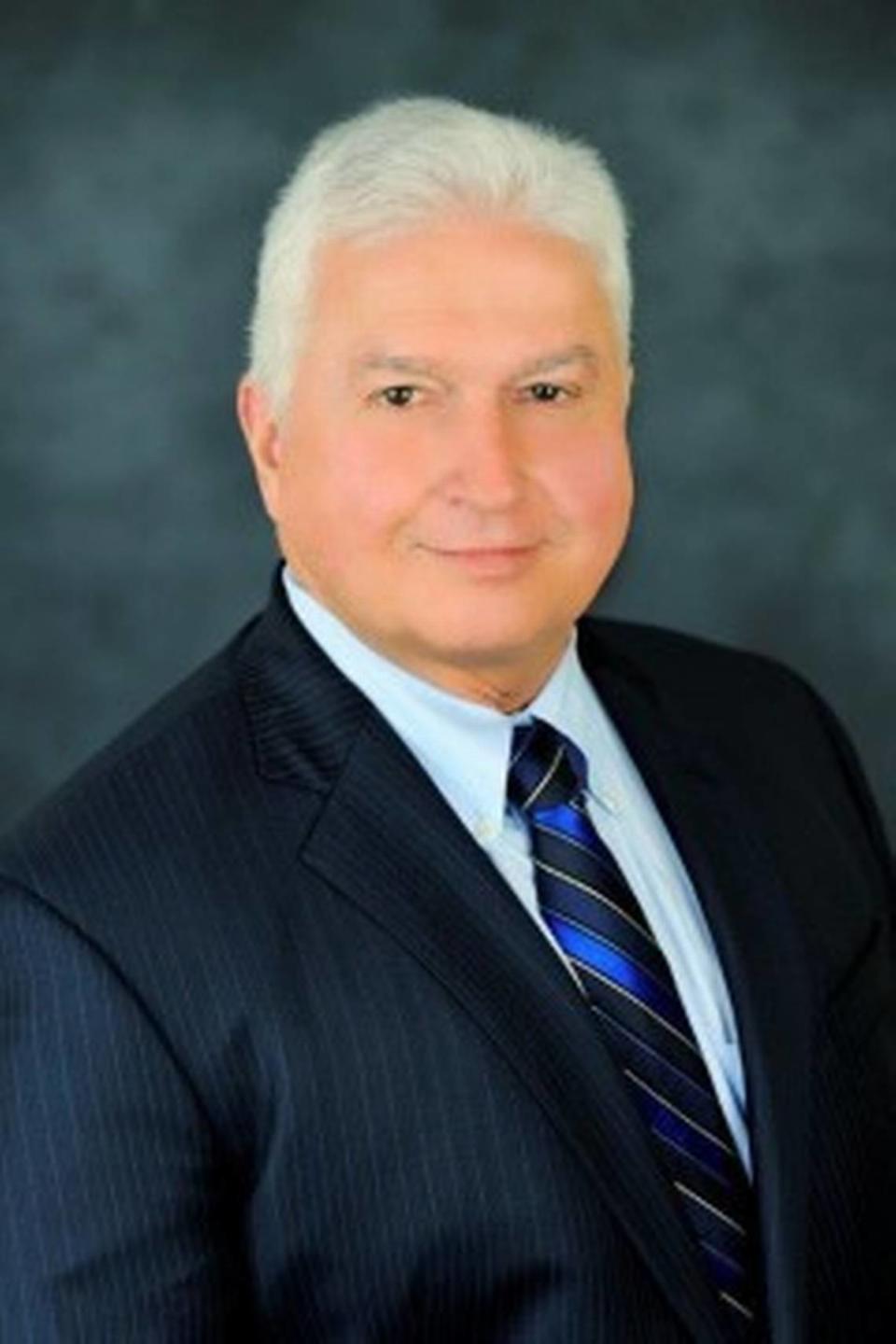DUI, family money fights, ‘willful ignorance’ get Miami metro area lawyers disciplined
Ignoring a client’s lies, ghosting a client and accusations of funny business with trust funds are among the reasons six South Florida attorneys made the monthly list of lawyers disciplined by the state Supreme Court.
In alphabetical order:
Leo Benitez, Coral Gables
Sometimes, clients lie to their lawyers. Sometimes, clients’ lies get punctured by the ice-cold pin of evidence. When the lawyer sees this happen, proper representation doesn’t mean trying to float the lie balloon.
That’s what Leo Benitez, Bar member since 1989, did when representing Roberto Kasinsky. Benitez refused to look at certified court records that put the lie to the claims of Kasinsky and Kasinsky’s brother-in-law, Jorge Dario Montoya, and kept pressing their lawsuit against attorney Richard Diaz. More case details were in an Aug. 1 Miami Herald article.
The referee’s report said Benitez, “testified that he put his head in the sand and engaged in willful ignorance, letting his close relationship with Mr. Kasinsky cloud his judgment.”
Benitez’s one-year suspension starts Aug. 19.
Aram Bloom, Miami
Aram Bloom, a Bar member since 2009, left a client with abandonment issues. What follows comes from Bloom’s guilty plea and the referee’s report accepting the guilty plea.
That client was Trandworld CEO Guy Chartrand. While at Shapiro, Blasi, Wasserman & Hermann, Bloom represented Trandworld from 2011-2018 without any problems. In March 2018, Trandworld retained Bloom to file a lawsuit against Justin Rubin and Catalina Martinez for breach of contract and foreclosure on a claim of lien for $157,032 of unpaid labor and project costs.
Bloom remained Trandworld’s attorney on the case as he moved to the Wilson Elser firm, then Hinshaw & Culbertson. He made more law firm moves than moves on the lawsuit, however.
“[Bloom] did not take any depositions or serve written discovery,” Bloom’s guilty plea said. “Rather, he missed deadlines and was non-responsive to client communications.”

On Nov. 7, 2018, Rubin and Martinez asked for partial summary judgment on the lien-foreclosure part of Trandworld’s suit and on the fradulent lien part of a countersuit they had filed. Bloom didn’t file a written response and only on the day of the motion’s hearing, May 23, 2019, did he submit an affidavit from Chartrand.
“However, it appears the trial court did not consider the affidavit, as it was not timely filed,” Bloom’s guilty plea said.
Though Bloom told Chartrand the court ruled in favor of Rubin and Martinez, he didn’t tell Chartrand that Trandworld was required to release its lien on Rubin and Martinez’s property. Instead, Bloom told Chartrand that he wasn’t clear about what the ruling meant for Trandworld’s lien.
Chartrand said he didn’t have many more conversations with Bloom. During the 2019 summer, Chartrand emailed Bloom and left messages with Bloom’s assistant at Hinshaw & Culbertson for Bloom.
As Bloom was giving Chartrand the sounds of silence, Rubin and Martinez’s lawyer was giving Bloom a demand that Trandworld obey the court order and release the lien. That June 6, 2019, request was followed on June 18 with a motion to discharge the lien with sanctions against Trandworld. Bloom’s ghosting kept Chartrand ignorant of all requests and motions.
Neither Bloom nor Chartrand attended the Aug. 22, 2019 hearing on the motion. So Chartrand didn’t know about an order requiring him to release the lien within 10 days or start getting fined $500 per day. He found out in September after he’d hired a new attorney, who couldn’t extricate Chartrand from $17,000 in sanction fines.
During this time, Bloom left Hinshaw. The referee’s report said he also was going through a “difficult divorce,” noted that he cooperated throughout the investigation and voluntarily stopped seeing clients from 2020-2022 after this case.
Bloom’s 91-day suspension begins Aug. 26.
Gregory Nordt, Fort Lauderdale
Gregory Nordt (admitted to the Bar in 1995) left Duffy’s Sports Grill’s Plantation location on Christmas Eve afternoon in 2020 inebriated, got in a car wreck a half mile down University Drive and walked back to Duffy’s. A passenger in the other car also left the scene, but in an ambulance with what the arrest report described as a “minor back injury.”
In 2022, Nordt did his six-month probation for DUI with personal injury (misdemeanor) concurrent with his 12-month probation for leaving the scene of a crash with personal injuries (felony). The latter got cut to seven months. Upon notifying the state of his no contest plea, conviction and sentence, Nordt was suspended on July 15, 2022.

The referee, Judge Robert Panse, gives Nordt credit for working on mental health issues through “treatment to the greatest degree his current financial situation would permit him.” Panse also says and says there have been no complaints about Nordt’s work.
But Panse, citing similar cases he found relevant, recommended a three-year suspension. The state Supreme Court agreed and Nordt is suspended until July 20, 2026.
Brian O’Connell, Tequesta
Brian O’Connell was admitted to the Bar in 1980 and was board certified by the Gar in Wills, Trusts and Estates from Aug. 1, 1990, until July 31, 2020.
So, Nancy Brown’s estate seemed in trusted hands when attorney O’Connell executed the Nancy Brown Amended and Restated Revocable Trust in 2009. Brown and Wachovia Bank, where Ciklin Lubitz did its banking, were the trustees before Wachovia dropped off as trustee in December 2011. Upon Brown’s death, $1,500 was to go to one person, $5,000 to another person, with the rest going to charities of O’Connell’s choosing.
O’Connell’s guilty plea says he, his support staff and his employer, the Ciklin Lubitz firm, “were very devoted to Brown and enabled her to remain in her residence with care nearly until she passed.”
That happened on Jan. 28, 2014. Ciklin Lubitz sold Brown’s apartment for $538,342.
“Beginning in March of 2014, [O’Connell] withdrew nearly all of the funds from the account which held the assets and used those funds for a variety of personal purposes,” Brown’s guilty plea admitted.
The Bar complaint put the amount at $506,455.

When a Ciklin Lubitz paralegal wondered if Brown’s actions were a-OK, the partners went to O’Connell, “who maintained that the terms of the trust permitted him to borrow the funds and it was his intention to pay them back.”
O’Connell did that over the next several months. But, his guilty plea admits, he hadn’t advised Brown to get counsel from another lawyer regarding the trust provision that O’Connell believed allowed him to borrow money.
As to the charitable donations, O’Connell made one on behalf of Brown, “but said it was on his own behalf. [O’Connell] maintains that this was a mistake within his office and later corrected when brought to his attention.”
O’Connell said the same thing about him claiming the deduction on his tax return. He filed an amended return.
Referee Judge Fabienne Elizabeth Fahnestock took into account O’Connell’s pro bono work and work in expanding Catholic Charities of Palm Beach, a guardianship program that provided services for incapacitated senior citizens, of whom Fahnestock estimates 70% are indigent.
She accepted his guilty plea for consent judgment and agreement to a one-year suspension and a $750 Ethics School attendance. The state Supreme Court agreed and O’Connell’s suspension started July 29.
Elizabeth Richert, Miami
Elizabeth Richert, a member of the Bar since 1992, is also licensed in Illinois where some of her relatives had a problem with her actions as trustee a trust set up by her uncle, Robert Richert, who died in 2009. A 91-year-old aunt filed lawsuit against Richert in federal court in 2015 and the aunt’s daughter took the baton after her mother’s death.
The suit alleged Richert was the aunt’s attorney when the aunt bought a house with money from the trust, but never put the house in the aunt’s name or in the name of the aunt’s trust. And the suit said Richert signed the house over by quitclaim deed, but never recorded the deed, instead keeping it in her own name. Richert was accused of violation on fiduciary duty and conflict of interest.
Richert lost the lawsuit, the court giving her cousin $95,850 in damages, the same amount in punitive damages and $54,451 in prejudgment interest. As she continues to fight the judgment via appeal, she cut off any Florida Bar action by applying for disciplinary revocation.
Disciplinary revocation, which the state Supreme Court says is “essential disbarment,” means the attorney accepts essential disbarment for five years. In return, the professional discipline cases go away. The attorney still must deal with any criminal or civil cases arising from the actions that spawned the discipline case.
As of Saturday, Richert will cease to be an attorney in Florida. She can apply for readmission to the Bar in five years.
J. Matthew Thorstad, Jupiter
J. Matthew Thorstad, Bar member since 2011, was an attorney for a defendant in a libel suit. He wanted information from two Tennessee mental health providers, LyndyStitch and Onsite Partners. He knew from a court action that the plaintiff and a third-party would have a problem with this, especially after a Florida court upheld the third party’s claim of marital therapy privilege on the information Thorstad wanted.
So, Thorstad issued the subpoenas to LyndyStitch and Onsite Partners, but “concealed the existence of these subpoenas from the affected parties, non-parties and their counsel...”
Thorstad’s attempt at an end run got slammed to the ground for his loss because, his guilty plea admits, it “violated various court orders and the Florida Rules of Civil Procedure.” In July 2018, Thorstad was found to be in civil contempt and indirect criminal contempt.
Thorstad accepted a 91-day suspension, which began Aug. 5.

